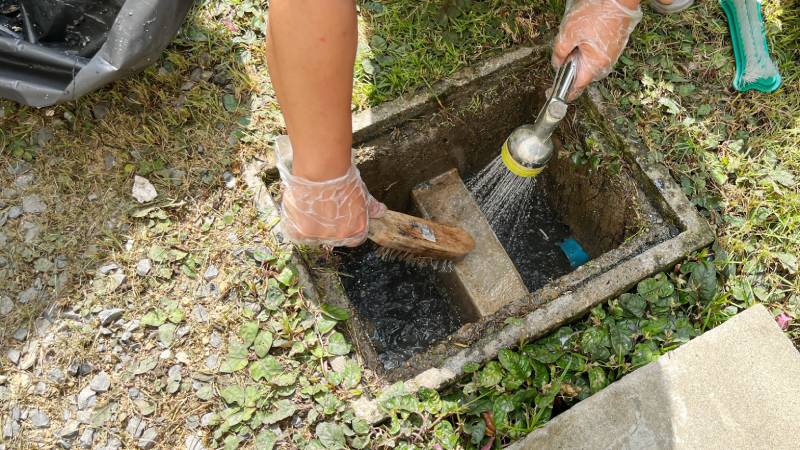Call This Monday to Get $50 OFF
Call us Now to Get $50 OFF.
Ratings based on 6379 reviews
Local Plumbers, Local Reviews
Call This Monday to Get $50 OFF
Call us Now to Get $50 OFF.
Ratings based on 6379 reviews
Local Plumbers, Local Reviews

If you’ve ever heard about grease traps but weren’t quite sure what they are or why they matter, you’re not alone. Grease traps might not be the most exciting topic, but they play a huge role in keeping your plumbing system running smoothly saving you from needing emergency plumbing service. Whether you’re a homeowner, a restaurant owner, or someone who loves learning how things work, Mr. Rooter Plumbing discusses how understanding grease traps can help you avoid costly repairs and even prevent emergency plumbing situations.
A grease trap, also called a grease interceptor, is designed to catch grease, fats, and oils before they go down the drain and clog your plumbing system. When you wash dishes or clean up after cooking, all sorts of greasy substances can end up in your sink. If left unchecked, these materials can solidify and block pipes, leading to slow drains or complete blockages.
Grease traps come in various sizes and can be installed in homes, commercial kitchens, and anywhere else grease is likely to enter the drainage system. They allow water to flow through while trapping grease in a separate compartment.
Grease traps are essential for keeping your plumbing system healthy. Without one, grease and oil can build up inside your pipes, causing clogs that are hard to remove. While calling a professional for a plumbing service is always an option, preventing the problem in the first place is usually better—and much cheaper.
In commercial kitchens, grease traps are even more critical. Restaurants produce a lot of grease; the buildup can lead to major plumbing issues without a proper system to handle it. Regular maintenance of grease traps can prevent these issues and help avoid emergency plumbing calls, which can disrupt business operations and cost a lot of money.
The process is pretty simple. The grease trap slows the flow when water and grease flow down the drain. Since grease is lighter than water, it floats to the top and gets trapped while the water continues to flow into the sewage system. Over time, the grease trap fills up and must be cleaned to keep working correctly.
If a grease trap isn’t cleaned regularly, it can become overwhelmed and stop functioning. This can lead to clogs and backups in the plumbing system. That’s when you might need to call a plumber in Apple Valley, CA for an emergency plumbing fix.
Not sure if your grease trap is working properly? Here are some signs it might need cleaning or repair:
If you notice any of these issues, contacting a plumbing service immediately is a good idea. Ignoring the problem can lead to more significant, costlier issues requiring emergency plumbing repairs.
Proper maintenance is key to keeping your grease trap and plumbing system in good shape. Here are some tips:
While there are steps you can take to maintain your grease trap on your own, some tasks are best left to a professional plumber. If you’re dealing with recurring clogs, strange smells, or other plumbing issues, it’s time to call in a plumbing service. They can diagnose the problem, clean or repair your grease trap, and ensure your plumbing system is back in top shape.
Don’t hesitate to call for emergency plumbing services in urgent situations like a complete drain backup or flooding. Quick action can prevent further damage and get things back to normal faster.
Grease traps may not be glamorous, but they’re vital to your plumbing system. Whether maintaining one in your home or managing a commercial kitchen, keeping your grease trap clean and functional can save you from costly repairs and emergency plumbing situations. By understanding how grease traps work and taking steps to care for them, you’ll keep your plumbing system running smoothly and avoid unnecessary headaches.
As a society, the delivery of clean water through various systems is one of the…
Read MoreAre you worried that the constant trickle of water in your toilet is the cause…
Read MorePlumbing problems are the one incident every homeowner dreads due to their expensive repairs and…
Read MoreWater heaters are vital appliances that keep households and commercial establishments running efficiently. Whether it is showering, drinking,…
Read MoreWhen it comes to leaks, not all of them are visible to the naked eye. Sometimes, the pipes…
Read More